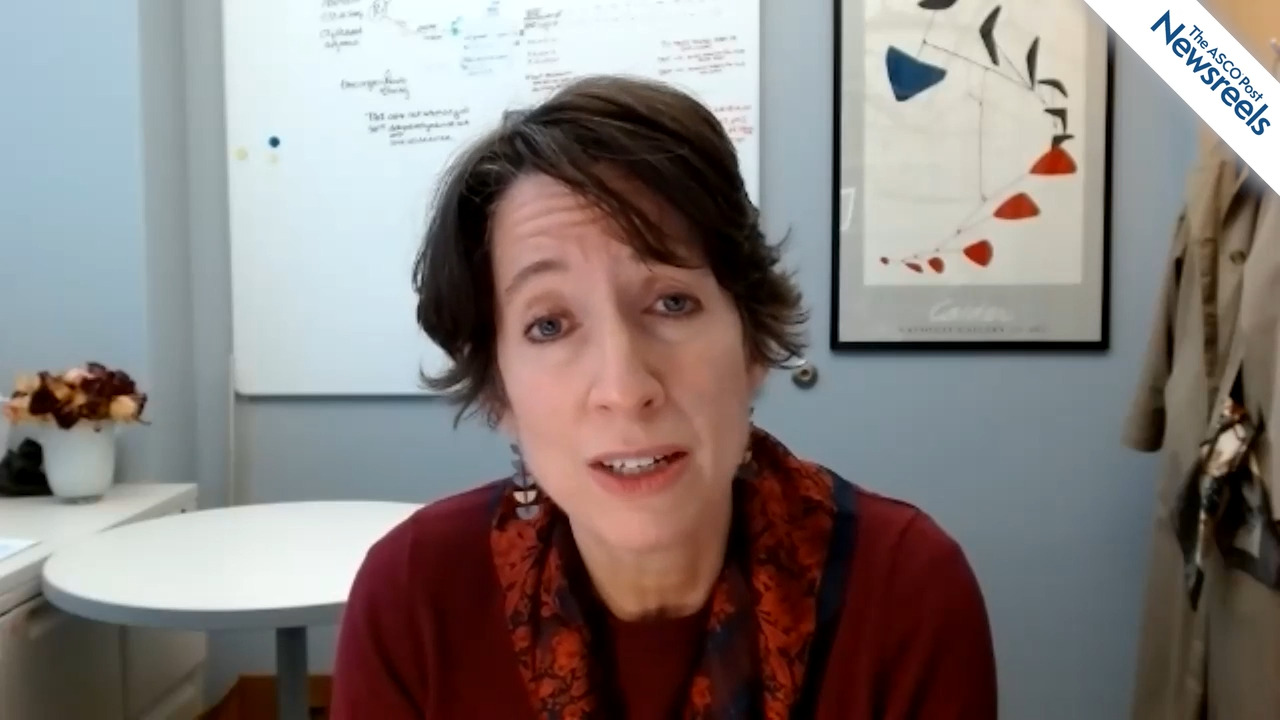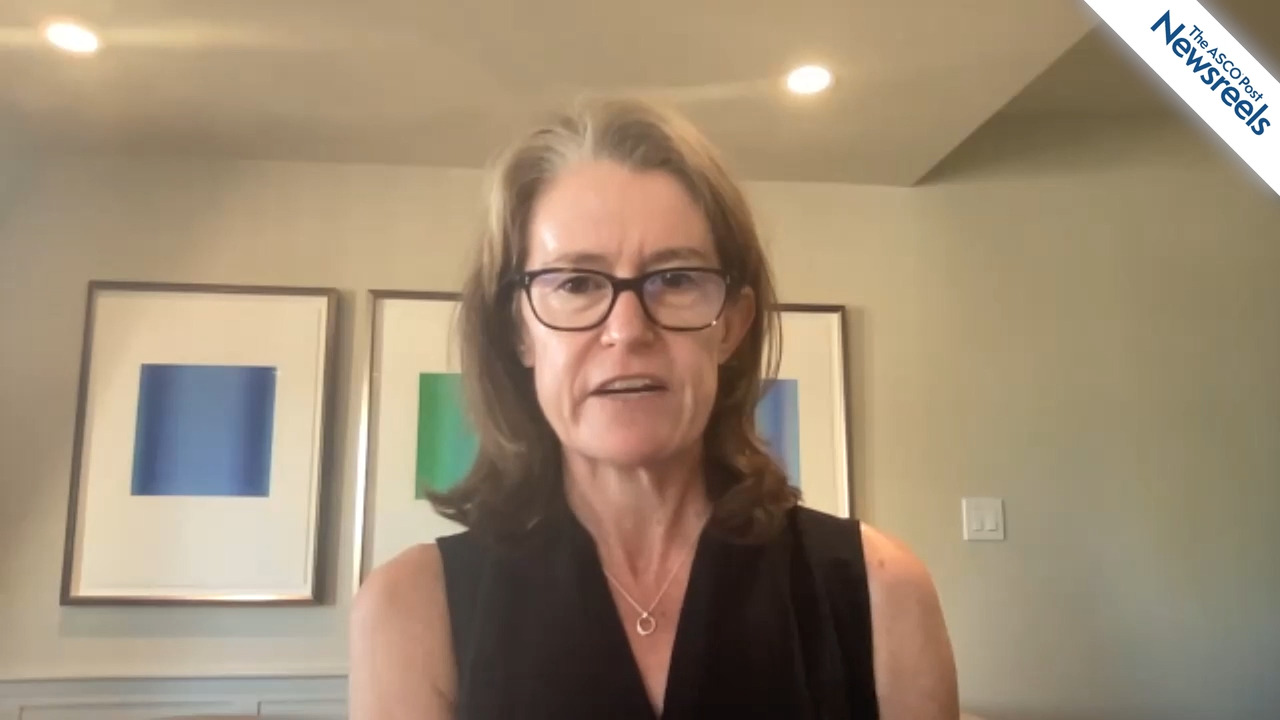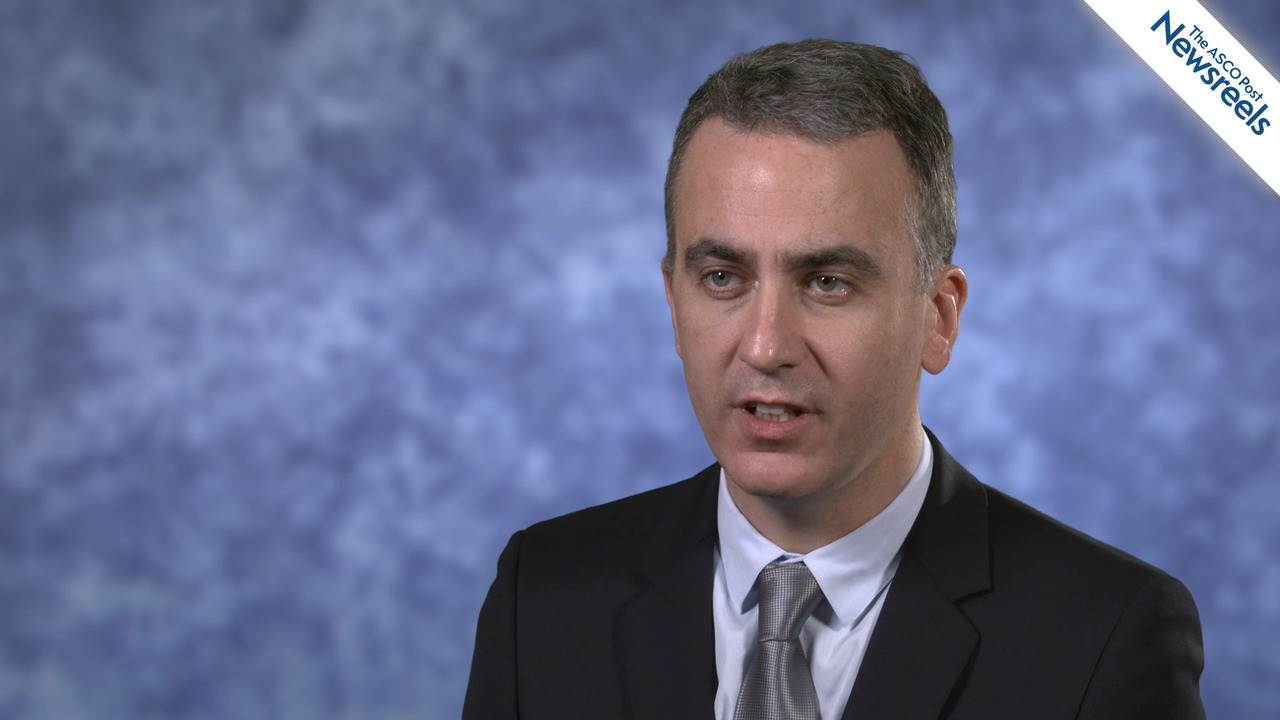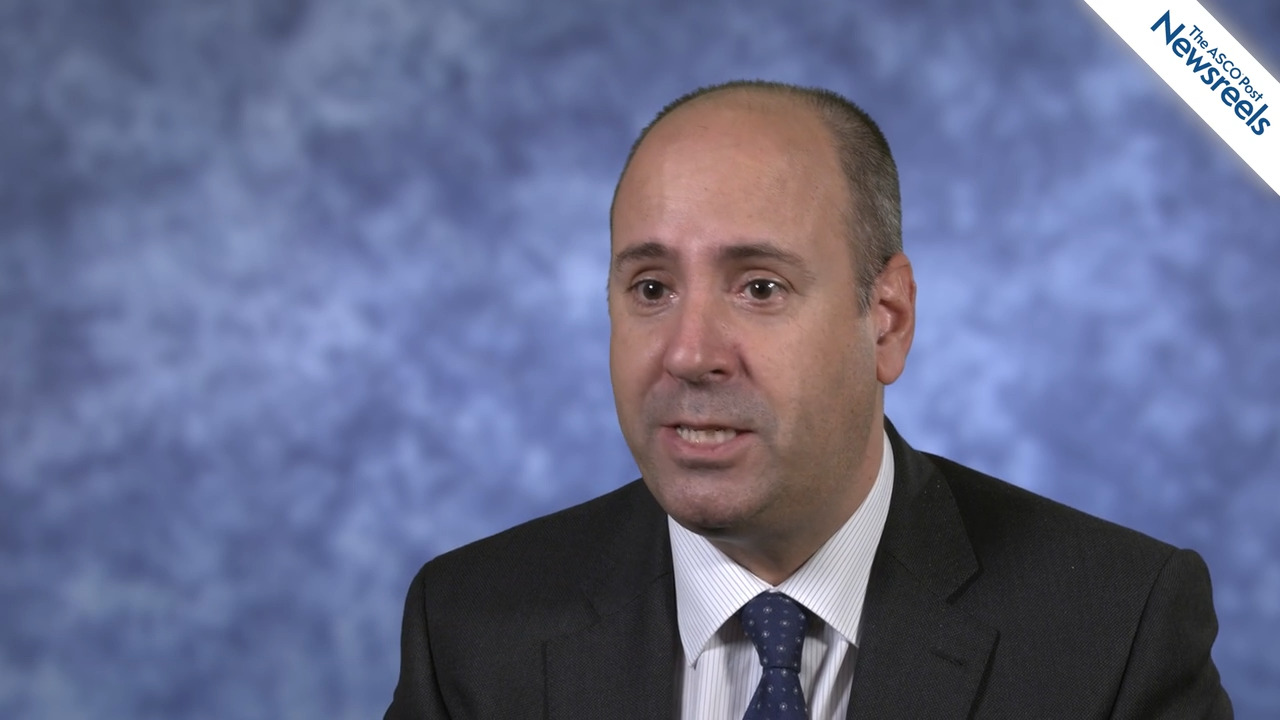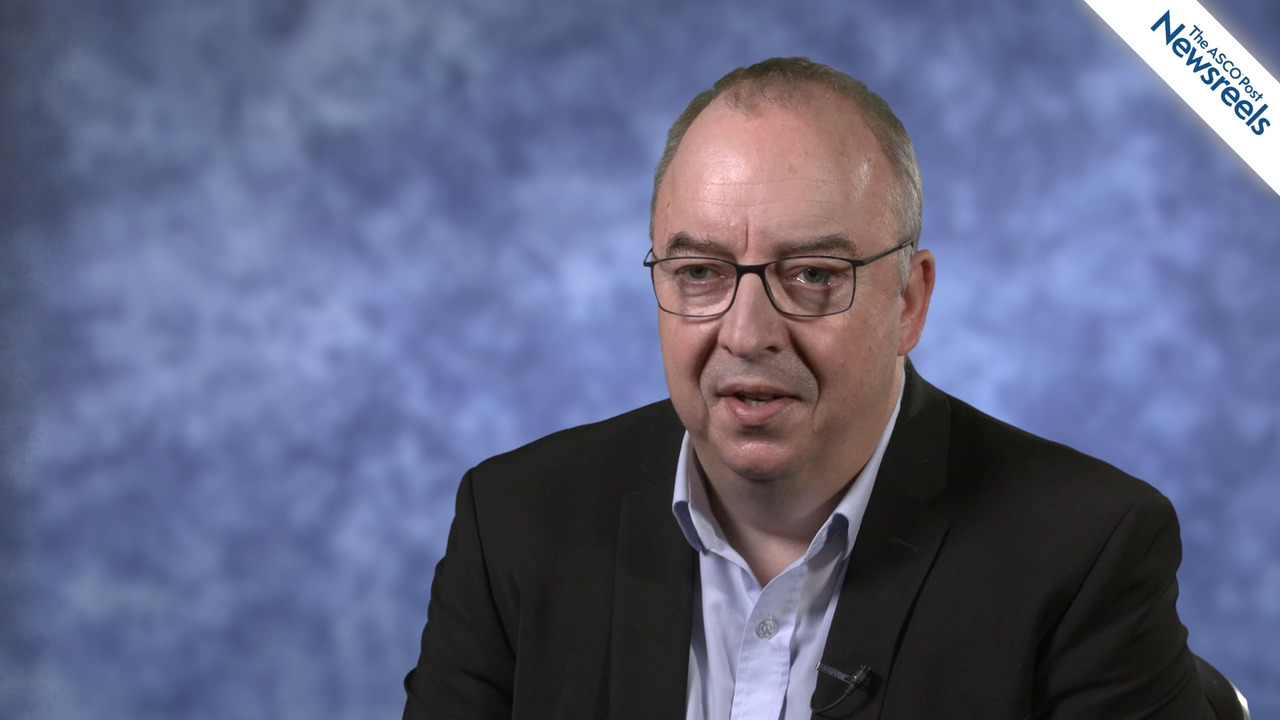Patricia A. Ganz, MD, on Early Breast Cancer, Olaparib, Chemotherapy, and Quality of Life
2021 San Antonio Breast Cancer Symposium
Patricia A. Ganz, MD, of the University of California, Los Angeles, discusses quality-of-life results from the phase III OlympiA study of adjuvant olaparib after (neo)adjuvant chemotherapy in patients with germline BRCA1/2 mutations and high-risk HER2-negative early breast cancer (Abstract GS4-09).
The ASCO Post Staff
Meredith M. Regan, ScD, of Dana-Farber Cancer Institute, discusses findings that point to the potential benefits of using adjuvant exemestane plus ovarian function suppression (OFS) to treat premenopausal women with hormone receptor–positive early breast cancer. This conclusion came after 13 years of median follow-up on the TEXT and SOFT trials, during which this regimen was compared with tamoxifen and OFS (Abstract GS2-05).
The ASCO Post Staff
Elizabeth A. Mittendorf, MD, PhD, of Dana-Farber Brigham and Women’s Cancer Center, discusses the progress made in recent years treating patients with triple-negative breast cancer (TNBC), including approval of the immunotherapy agents pembrolizumab and sacituzumab govitecan-hziy, a new standard of care in the preoperative setting for early-stage disease, as well as a better understanding of the biology of TNBC and its heterogeneity.
The ASCO Post Staff
François-Clément Bidard, MD, PhD, of the Institut Curie, discusses phase III findings of the PADA-1 study, which showed that optimizing endocrine therapy after detecting the ESR1 mutation in patients with hormone receptor–positive, HER2-negative metastatic breast cancer may double their median progression-free survival (Abstract GS3-05).
The ASCO Post Staff
Javier Cortés, MD, PhD, of the International Breast Cancer Center, discusses the final phase III results of KEYNOTE-355, which showed that pembrolizumab and chemotherapy improved overall and progression-free survival, compared with placebo and chemotherapy, for patients with previously untreated, locally recurrent, inoperable or metastatic triple-negative breast cancer (Abstract GS1-02 ).
The ASCO Post Staff
Michael Gnant, MD, of the Medical University of Vienna, discusses phase III findings from the PALLAS study, which showed that adding 2 years of palbociclib to ongoing adjuvant endocrine therapy did not improve survival for patients with stage II to III hormone receptor–positive, HER2-negative early breast cancer. Dr. Gnant also talks about whether any correlative studies hint at patient subgroups that this regimen may benefit (Abstract GS1-07) .
